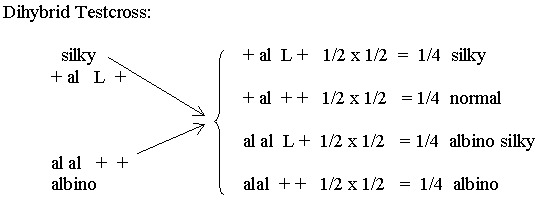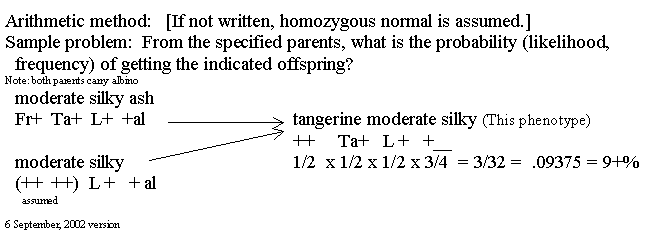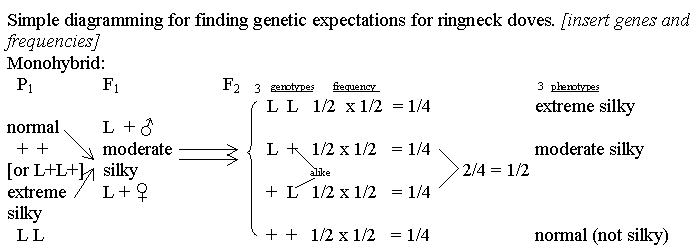
Using this simple system you can
predict
"What will I get if I breed this color to this color?"
by Dr. W. J. Miller
ADA Show in Louisville, KY. October 25-26 2002
Minimal terms to know for Genetic manipulation and prediction: Allele- alternative form(s) of a gene (often, or usually, can be called a mutant).
Chromosome- DNA carriers of genes controlling heredity. One set comes from the father and one "matching" set comes from the mother.
Gene- linear order of certain organic bases on chromosomes controlling a particular character. Named as a letter or letters of the alphabet indicative of the character, as L = lace or silky, al = albino. Capital letters for dominants, and lower case for recessive genes.
Genotype- the genetic symbolization of controlling genes; e.g. al//al L//+ (or in the short version: al al L + controlling the phenotype albino silky. For space considerations and reduction of "clutter", the // indicating the chromosomes is omitted.
Phenotype- that which shows or is detected without direct reference to controlling genes; e.g. albino silky.
Heterozygous- possessing unlike alleles (genes) at a locus on a chromosome. (split) Homozygous- possessing like (double dose of the same) genes at a locus on a chromosome. ("Pure")
Codominant- a gene or character showing its effect in one dose and a different effect (usually more extreme) when homozygous.
Dominant- a gene or character showing its complete effect in one dose (able to hide the presence of an unlike allele).
Recessive- a gene or character showing its effect only when homozygous (present in double dose).
P1 – purebred parental
generation
F1 – first Filial generation (from a cross of
different P1)
F2 - second filial generation (from
a cross of F1 among themselves)
TC = testcross from a cross
of an F1, or equivalent, to a recessive genotype.
[Why "split" is not a good usage? It can refer to two or more genes/characters at two or more loci. It can refer to dominants as well as recessives, and fanciers seem to use it mainly for recessives.]

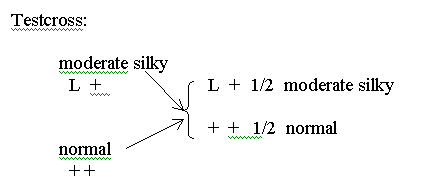
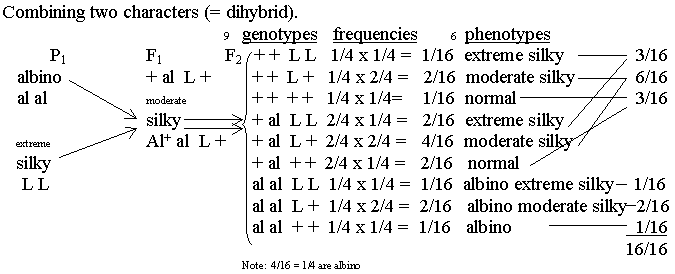
Dihybrid Testcross: